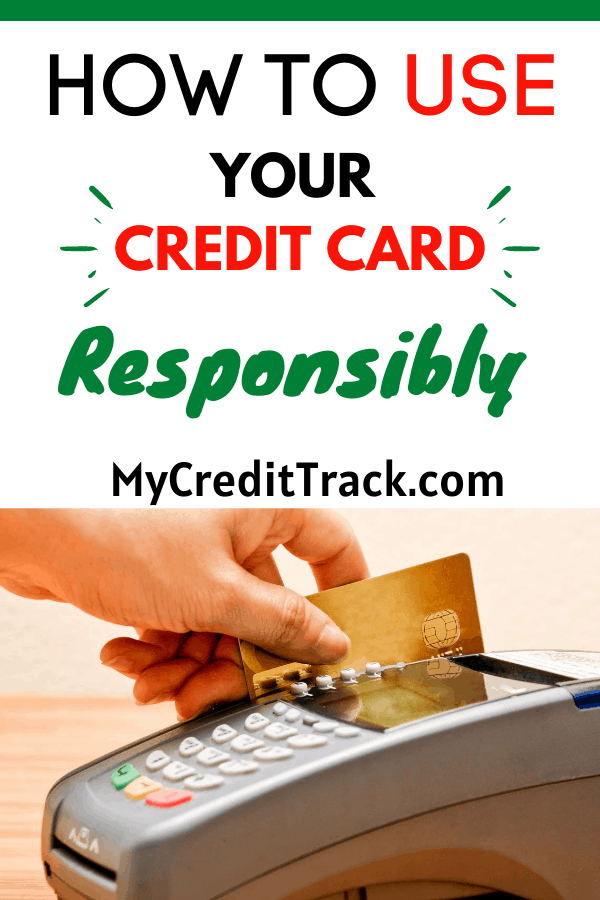The truth is, credit cards can have devastating effects if you don’t use them the right way. That’s why it’s important to learn how to use your credit card responsibly to avoid the consequences and gain only the benefits of them:
- Build a good credit history
- Track & manage your spending in one account
- They offer better purchase and fraud protection compared to debit cards
- You can earn about 1%-2% cashback every time you use it
Tips to Use Your Credit Card Responsibly
According to FICO’s research, people who are consistently utilizing a large percentage of their available credit are more likely to have late payments ore even worse total default. People who keep low balances have a limited history fo late payments or default.
FICO also has the data to show that if you have a long history of making on-time payments on your balances then this is a good way to show lenders you can responsibly manage additional credit.
However, in the long run, it is not a good practice because it can affect your debt to income ratios. Not to mention, people who practice good financial habits typically do not want to pay interest on revolving debt for years to come.
1. Self-discipline is Your Best Friend
As a general rule of thumb, you should never purchase anything you’re not comfortable paying with cash or your debit card.
Many users hesitate less to make purchases using credit cards. Avoid using your credit card for buying unnecessary goods only because you feel like you can buy them.
This way, it’s a good practice to imagine or ask yourself: “Would I bought this if I had to pay using cash?”
If the answer is no, you may consider skipping this purchase.
2. Pay Your Bills Consistently
This might sound like an obvious tip, but it’s the reason why many users end up paying interest.
By paying your bills on time (end of the month or end of the billing period) you get multiple benefits:
- Your credit score depends on how consistently you pay your bills
- You avoid paying late fees
- You’re making sure you don’t have to pay interest or carrying a balance
3. Don’t Spend More than You Can Afford
To use your credit card responsibly, you should never spend more money than you can actually afford.
A good strategy that many responsible credit card users follow is no spending more than 1/3 of their monthly income on debt.
In other words, borrow only what you’re sure you can pay back on time.
Almost all credit cards offer online monitoring and even mobile apps to let you quickly track your spending. The majority of them automatically categorize your spendings, so you’ll know how you spent your money.
If you’re more of a traditional type and you prefer pen and paper, there’s nothing wrong with that!
The important thing is to track your spending so you can stay within your budget.
4. Create & Follow a Budget
This is the best way to manage your finances, no matter what your primary payment method is.
But it’s even more important if you use your credit card regularly. You should spend some time to write down all your sources of income and your monthly expenses.
Use your notebook, your laptop or whatever works better for you.
This tip will really help you understand:
- how much you can afford to borrow
- where you spend the majority of your income
- how much you can spend monthly
- what goods you should purchase using your credit card
- how much you can save each month
5. Have a “Plan B”
No matter how responsible you are, we all have some months that unexpected events can occur and prevent us from paying our credit card’s balance in full.
That’s why it’s important to save money and have an emergency fund.
It’s ok if this doesn’t happen often. However, you should know how to manage a situation like this.
First of all, you should try to pay at least the minimum payment if you’re able to. Then, don’t use this credit card to make more purchases.
Make sure you have paid your full balance until you use this credit card again.
6. Ask for a Credit Report at Least Once Every 12 Months
Electonic systems may be modern and helpful, but mistakes can still be made.
By checking your credit card reports, you can spot errors that may cost you like suspicious accounts you don’t know, paid loans that are still marked as opened or incorrect details such as misspelled names or addresses.
In case you didn’t know, you can ask for a free copy from any of 3 international consumer credit card reporting companies:
- Equifax
- Experian
- TransUnion
You can ask for your free report once a year by mail, phone or simply through www.annualcreditreport.com
Although these reports are helpful to check your credit card history, they don’t provide your FICO score.
To check your score, visit CreditWise.
7. Start with Good Habits
Nowadays, so many people are afraid of using credit cards.
Are you thinking to start using a credit card even if you have never used one before?
Then you have nothing to worry about if you’re a responsible adult and you maintain the right spending/paying habits.
The most important thing is to start with the right habits from the first time you use a credit card.
Keep in mind all the above-mentioned tips and try to be as responsible as possible. This way, you’re not going to have any consequences using your credit card.
8. Be Careful about Large Purchases
Credit cards give you the option to make a large purchase that you can pay over time. However, this is often an expensive way to pay.
If you want to make a large purchase using your credit card, make sure you’re aware of the interest you’re going to pay.
Further, consider what other payment options you can afford because it’s likely they’ll cost you less.
9. Joint Accounts Affect Your Credit Score.
The activity on a joint account is reflected in both credit reports. A joint account is different than an account with an authorized user. Joint account holders can use the account and are liable for the debt, while authorized users can use the account but are not liable for the debt.
For example, if you add your spouse to a credit card your credit history will be on your spouse’s credit report. This is called adding an authorized user. This does not mean that you and your spouse have a merged or joint credit score.
The Smartest Way to Use a Credit Card
If you know how to use your credit card responsibly, you have nothing to worry about.
Make sure you create & follow a budget plan, track your expenses, check your reports and always be consistent with your payments.
Of course, you shouldn’t use your credit card to buy unnecessary things you can’t afford.
If you start using a credit card following good habits, it will be much easier for you to rip the benefits of credit cards while avoiding all negative effects.
How to Use Your Credit Card Responsibly FAQ
1. Have Self-discipline
2. Pay your bills consistently
3. Don’t spend more than you can afford
4. Create & follow a budget
5. Have a backup plan
6. Check your reports at least once a year
7. Start with good habits and maintain them
8. Be careful about large purchases you pay over time
1. Pay your bills on time
2. Don’t carry a balance too often
3. Don’t approach your credit card limit. Keep balances below 30% of your credit limit
4. Use your credit card for small purchases you can pay off in time



